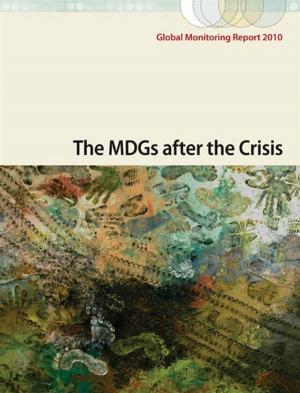Accountability through Public Opinion: From Inertia to Public Action
Nonfiction, Social & Cultural Studies, Political Science, Government, Public Affairs & Administration| Author: | Odugbemi, Sina; Lee, Taeku | ISBN: | 9780821385562 |
| Publisher: | World Bank | Publication: | May 16, 2011 |
| Imprint: | Language: | English |
| Author: | Odugbemi, Sina; Lee, Taeku |
| ISBN: | 9780821385562 |
| Publisher: | World Bank |
| Publication: | May 16, 2011 |
| Imprint: | |
| Language: | English |
Accountability has become a buzzword in international development. Development actors appear to delight in announcing their intention to ?promote accountability??but it is often unclear what accountability is and how it can be promoted. This book addresses some questions that are crucial to understanding accountability and for understanding why accountability is important to improve the effectiveness of development aid. We ask: What does it mean to make governments accountable to their citizens? How do you do that? How do you create genuine demand for accountability among citizens how do you move citizens from inertia to public action?The main argument of this book is that accountability is a matter of public opinion. Governments will only be accountable if there are incentives for them to do so?and only an active and critical public will change the incentives of government officials to make them responsive to citizens? demands. Accountability without public opinion is a technocratic but not an effective solution.In this book more than 30 accountability practitioners and thinkers discuss the concept and its structural conditions; the relationship between accountability information and the media; the role of deliberation to promote accountability; and mechanisms and tools to mobilize public opinion. A number of case studies from around the world illustrate the main argument of the book: Public opinion matters and an active and critical public is the surest means to achieve accountability that will benefit the citizens in developing countries. This book is designed for policy-makers and governance specialists working within the international development community national governments grassroots organizations activists and scholars engaged in understanding the interaction between accountability and public opinion and their role for increasing the impact of international development interventions.
Accountability has become a buzzword in international development. Development actors appear to delight in announcing their intention to ?promote accountability??but it is often unclear what accountability is and how it can be promoted. This book addresses some questions that are crucial to understanding accountability and for understanding why accountability is important to improve the effectiveness of development aid. We ask: What does it mean to make governments accountable to their citizens? How do you do that? How do you create genuine demand for accountability among citizens how do you move citizens from inertia to public action?The main argument of this book is that accountability is a matter of public opinion. Governments will only be accountable if there are incentives for them to do so?and only an active and critical public will change the incentives of government officials to make them responsive to citizens? demands. Accountability without public opinion is a technocratic but not an effective solution.In this book more than 30 accountability practitioners and thinkers discuss the concept and its structural conditions; the relationship between accountability information and the media; the role of deliberation to promote accountability; and mechanisms and tools to mobilize public opinion. A number of case studies from around the world illustrate the main argument of the book: Public opinion matters and an active and critical public is the surest means to achieve accountability that will benefit the citizens in developing countries. This book is designed for policy-makers and governance specialists working within the international development community national governments grassroots organizations activists and scholars engaged in understanding the interaction between accountability and public opinion and their role for increasing the impact of international development interventions.















